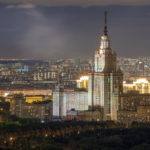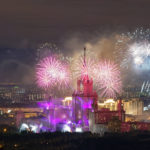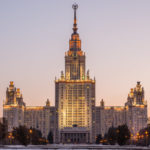MA IN POST-SOVIET PUBLIC POLICY
Joint MGU & MGIMO MA in Post-Soviet Public Policy is an English-taught Dual Degree, taking place at the two leading Russian universities. It is designed by an international board of professors to train future policy-makers and experts, who understand the complex nature of social, political, and economic processes in the Post-Soviet region.
MA at a glance
MA in Post-Soviet Public Policy is the first Dual Degree between Lomonosov Moscow State University and Moscow State Institute of International Relations (MGIMO). The program is fully-taught in English and dedicated to building a strong community of international experts in public policy and political processes, taking place in the Post-Soviet region.

Key facts:
- MGU and MGIMO create a unique and powerful alliance. While MGU is widely known as the first Russian university, having more than 40 faculties and providing a profound interdisciplinary education for its students, MGIMO is recognized as one of the World`s best universities, focusing on international relations and diplomacy.
- the program is taught by an international board of professors, coming from the leading universities in Europe, the USA, China, and Russia! During the last two years, the program hosted workshops and lectures with prof. Alena Ledeneva (UCL), prof. Julie Newton (Oxford University), prof. Alexander Cooley (Columbia University) and many other outstanding professors!
- the curriculum of the program was elaborated by a team of experts from the World`s leading universities. An academic advisor of our program is prof. Robert Legvold (Columbia University), who largely contributed to the high academic quality of the program.
- diversity matters. At the moment, students on our program represent such countries as China, Tajikistan, Kazakhstan, Mongolia, Turkey, Russia, Macedonia, Italy, the USA!
- each year the program provides a limited number of scholarships to outstanding applicants. Scholarship covers 100% of one semester’s tuition fee.

About Moscow State University (Lomonosov MSU)
- Moscow State University was established in 1755.
- More than 40 000 students (graduate and postgraduate) and about 7 000 undergraduates study at the university, and over 5 000 specialists do the refresher course here. More than 6 000 professors and lecturers, and about 5 000 researchers work for the faculties and research institutes.
- Every year Moscow University enrolls about 4 000 international students and postgraduates from all over the world.
- Moscow University campus is an extremely complex system, with its 1 000 000 m2 floor area in 1 000 buildings and structures, with its 8 dormitories housing over 12 000 students and 300 km of utility lines.
- MSU library system is one of the largest in Russia, with its 9 000 000 books, 2 000 000 of them in foreign languages, and the average number of readers 55 000, using 5 500 000 books a year.
Moscow State University is a major traditional educational institution in Russia, it offers training in almost all branches of modern science and humanities. Its undergraduates may choose one of 128 qualifications in its 39 faculties, while post-graduate students may specialize in 18 branches of science and humanities and in 168 different areas. The total number of MSU students exceeds 40 000; besides, about 10 000 high school students attend various clubs and courses at MSU. Various kinds of academic courses and research work are conducted at MSU Museums, affiliated subdivisions in various locations in Russia, on board scientific ships etc.
MSU is a center of research science famous for its major scientific schools. There have been 11 Nobel Prize winners among its professors and alumni, out of 18 Russians who have received the prestigious prize so far. Many more MSU scientists have been awarded various Soviet and Russian prizes for their achievements, among them 60 Lenin Prizes and 120 State Prizes, over 40 MSU scientists having received the State Prizes over the last decade.
Among those who teach and do research at MSU there are 2 500 higher doctoral degree holders and almost 6 000 holders of candidate degrees, the total number of professors and instructors being about 5 000; there are over 300 full members and correspondent members of the Russian Academy of Sciences and other academies. About 4 500 scientists and scholars are currently involved in 350 research projects in various fields.
Besides its 39 faculties, Moscow University comprises 15 research institutes, 4 museums, 6 local branches in Russia and abroad, about 380 departments, the Science Park, the Botanical Gardens, The Library, the University Publishing House and a printing shop, a recreational center and a boarding school for talented children.
A number of new faculties, departments, and research laboratories have been recently established, new academic programs are being continuously introduced together with new curricula; there are over 140 distance learning programs. Research has recently started in 30 new interdisciplinary areas.
The University’s scientific potential creates a unique opportunity for interdisciplinary research and pioneering work in various branches of science. The recent years have been marked by achievements in the fields of high-energy physics, superconductivity, laser technology, mathematics and mechanics, renewable energy sources, biochemistry, and biotechnology. New problems to be studied by scholars often reveal themselves while they are working on various aspects of sociology, economics, history, psychology, philosophy, and the history of culture. On average 800 doctoral and 200 higher doctoral degrees in various fields of science and humanities are awarded at MSU every year.
The 1st Humanities Building on the new campus Moscow University is a major innovative center. The first Russian Science Park appeared at MSU; in the last three years about 70 small companies have been founded within the Park, they specialize in chemistry and innovative materials, biotechnology, pharmaceutics, ecology and environmental management, production of scientific equipment and instruments. The Park unites about 2 000 scientists who work to make scientific achievements into technological innovations, cooperating with business companies in the development of innovative technologies. It is in the Scientific Park that the links with leading Russian companies and potential employers of University graduates are established. Another area where links between academics and business have been successfully developing is corporation universities within Moscow University that are a model of innovative approach to tuition. Accomplished in 2006–2007 within the framework of the National Educational Project, the practical implementation of the approach resulted in 67 innovative Master’s Degree programs.
______
Information from Lomonosov MSU official website msu.ru
About MGIMO
MGIMO was founded on 14th of October 1944 by a special decree of the Soviet Government on the basis of the recently established School of International Relations of the Lomonosov Moscow State University. The new university, initially headed by Ivan Udaltsov, a famous Soviet economist and former Moscow State University Rector, represented an exceptional type of higher school from its very outset. Despite its proximity to political elites, MGIMO always maintained the spirit of intellectual freedom encouraging independent thinking in its students.
MGIMO is renowned as one of the leading Russian universities for international, political, legal and economic studies. MGIMO today is a full-fledge university offering both graduate and undergraduate degree programs, as well as PhD, MBA, EMBA courses and pre-university tutorials. The range of academic disciplines constantly expands as new departments and programs are launched every year.
The University structure comprises two campuses, ten schools and three institutes. Over its 75-year history, MGIMO has evolved from a purely “diplomatic school” to a university that breeds innovative leaders with a global perspective. MGIMO is known for its teamwork, analytical thinking, critical reasoning, and strategic planning.
- Undergraduate, Postgraduate (Master’s and PhD), as well as continuing education programs (MBA, EMBA) in over 30 areas of study.
- First top Russian university offering a full-fledged B.A. program in International Affairs for foreign students, taught entirely in English.
Guinness Record for 53 living languages concurrently taught full-time in every term. - 355 of the QS Top University ranking (2018) – one of 4 Russia’s Universities enlisted and the only one to be granted 5QS stars for quality management practices, internationalization, employability, and 4 QS stars for teaching.
- 4th best research center of Central and Eastern Europe (UN commissioned Pennsylvania University Survey).
- Full APSIA (Association of Professional Schools of International Affairs) Member School.
- More than 200 cooperation agreements with foreign partners from 65 countries.
- 78 courses in English, German and French offered at Bachelor’s and Master’s levels.
- Among MGIMO graduates – 3 Presidents, 10 Foreign Ministers, 8 Prime Ministers, 880 Ambassadors of Russia and foreign countries.
- 33 Dual Degree Programs.
- International AMBA accreditation
MGIMO consistently ranks high in university ratings. “Global Go To Think Tank Index Report 2017” report issued by the University of Pennsylvania represented MGIMO among worldwide research leaders, e.g. №32 in Think Tanks with the Most Significant Impact on Public Policy and №12 in Top Think Tanks in Central and Eastern Europe. Under the auspices of the Ministry of Foreign Affairs, MGIMO is an esteemed policy think-tank and forum for debate and analysis of international developments and current affairs, with its contribution to global analysis highly sought after.
MGIMO offers its students the broadest opportunities for creative self-accomplishment. Various student organizations fill the calendar with cultural, social and sport events. Of course, MGIMO is in Moscow, one of the world’s great cities, with an array of cultural and historical treasures, vibrant dazzling lifestyle events. It offers easy access to the diversity and energy of contemporary Russia and its epic heritage. MGIMO is a wonderful life experience for international students.
____________
Information from MGIMO official website https://english.mgimo.ru




